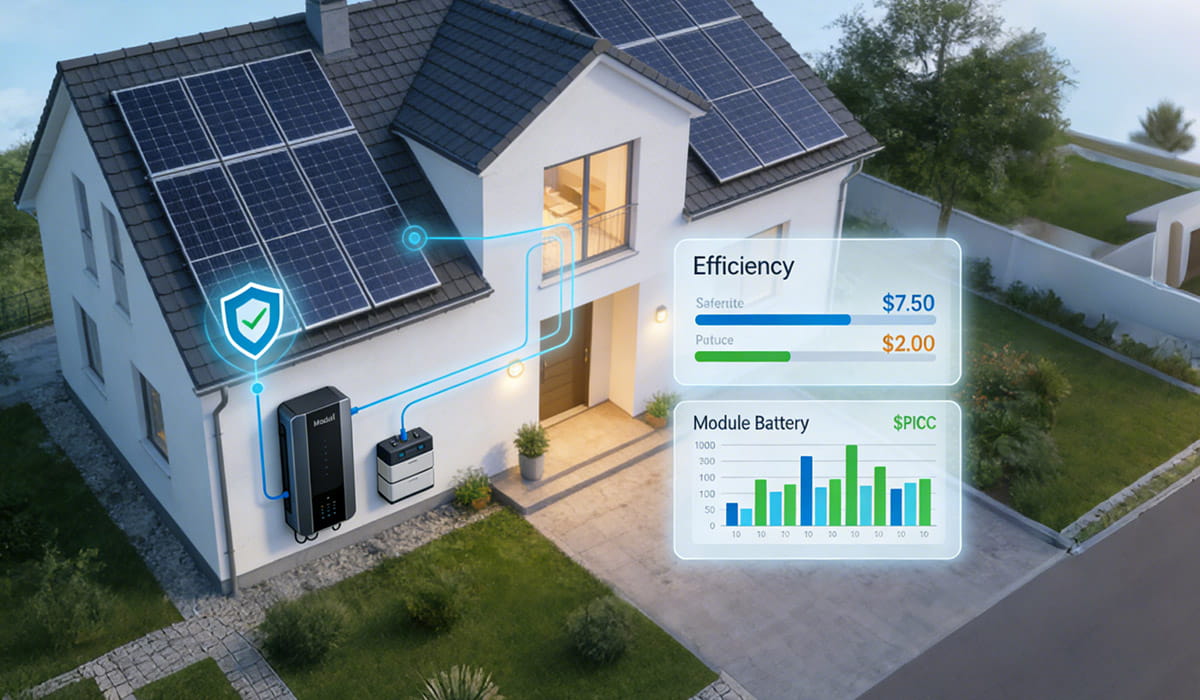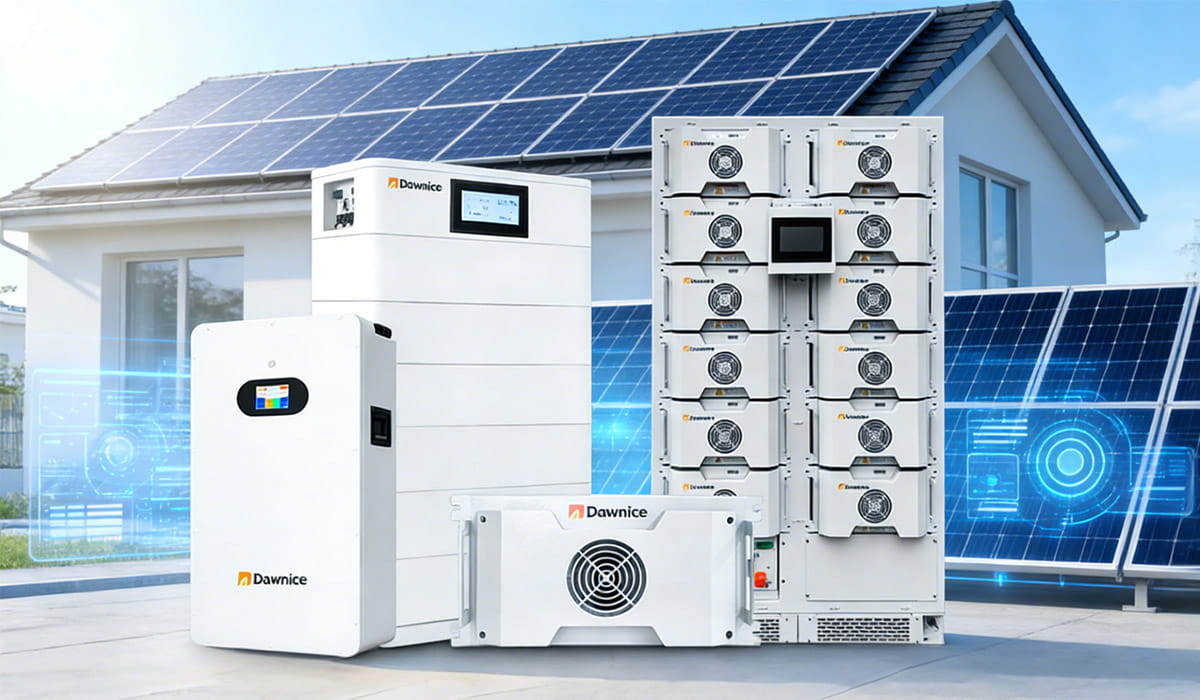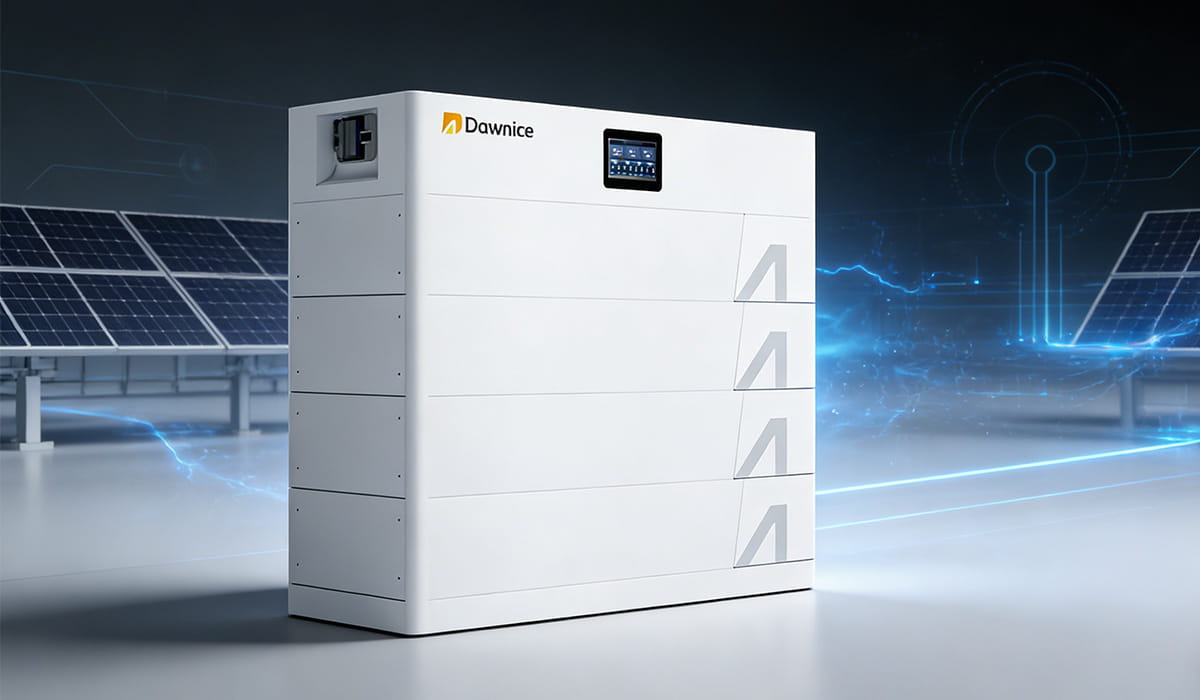Blog
Blog
Different Types of Battery Energy Storage Systems (BESS) Explained | Key Benefits & How to Choose
Published by Dawnice, October 30, 2025
Welcome to our comprehensive guide on Battery Energy Storage Systems (BESS)! If you’re exploring ways to store solar energy efficiently or simply curious about how batteries can power your home or business, you’re in the right place. In this article, we’ll break down everything you need to know about BESS in a simple, engaging way. By the end, you’ll understand the different types of batteries, key factors to consider, and practical tips to make an informed decision. Let’s dive in!
What Are Battery Energy Storage Systems (BESS)?
Battery Energy Storage Systems (BESS) are advanced devices that store electrical energy in chemical form for later use. Think of them as giant rechargeable batteries that can capture excess electricity—like from solar panels—and release it when needed, such as during power outages or peak demand times. This technology is revolutionizing how we manage energy, especially with the rise of renewable sources like solar power.
But what type of energy does a battery store? In simple terms, batteries store chemical energy, which is converted into electrical energy when you need it. This makes BESS a crucial component for balancing energy supply and demand, reducing electricity costs, and enhancing grid stability.
Key components of a BESS include:
- Battery cells: The core units where energy is stored.
- Inverter: Converts stored DC power to AC for everyday use.
- Control system: Manages charging, discharging, and safety.
- Thermal management: Keeps the battery at optimal temperatures.
Whether you’re a homeowner with solar panels or a business looking to cut energy costs, understanding BESS can help you harness energy more effectively.
Types of Batteries for Energy Storage
When it comes to energy storage, not all batteries are created equal. Different chemistries offer unique advantages and drawbacks. Below, we’ll explore the most common types of batteries used in BESS, including their key characteristics.
Common Battery Chemistries
- Lithium-Ion Batteries:
- High energy density and efficiency, making them popular for residential and commercial use.
- Long lifespan and fast charging capabilities.
- Commonly used in electric vehicles and solar storage systems.
- Lead-Acid Batteries:
- Low cost and reliable, but heavier and with shorter lifespans.
- Ideal for backup power in off-grid applications.
- Flow Batteries:
- Scalable and long-lasting, suitable for large-scale energy storage.
- Use liquid electrolytes, which allow for extended cycle life.
- Nickel-Based Batteries:
- Includes nickel-cadmium and nickel-metal hydride.
- Durable and perform well in extreme temperatures, but less common due to environmental concerns.
Subtypes of Lithium-Ion Batteries
Lithium-ion batteries aren’t all the same—they come in several subtypes, each with unique chemistries. Here are the most common ones:
- Lithium Iron Phosphate (LFP):
- Excellent safety and long life due to stable chemistry.
- Lower energy density but highly reliable for home energy storage.
- Lithium Nickel Manganese Cobalt Oxide (NMC):
- High energy density and good performance across temperatures.
- Widely used in consumer electronics and electric vehicles.
- Lithium Cobalt Oxide (LCO):
- High specific energy but shorter lifespan and safety concerns.
- Mostly found in small devices like laptops.
- Lithium Titanate Oxide (LTO):
- Rapid charging and long cycle life, but more expensive.
- Ideal for applications requiring frequent charging.
When choosing a lithium-ion BESS, consider factors like safety, cost, and intended use to pick the right subtype for your needs.
Factors to Consider When Choosing a BESS
Selecting the right Battery Energy Storage System can feel overwhelming, but it doesn’t have to be. Here are the key factors to keep in mind to ensure you make a smart investment:
- Cost: Evaluate upfront costs versus long-term savings. Lithium-ion systems may cost more initially but offer better longevity.
- Efficiency: Look for high round-trip efficiency (how much energy is retained after storage and retrieval). Aim for systems with 90% or higher.
- Lifespan: Check the number of charge cycles and warranty periods. Longer lifespans reduce replacement costs.
- Safety: Ensure the system has built-in protections against overcharging, overheating, and short circuits.
- Scalability: If you plan to expand your solar setup, choose a BESS that can grow with your needs.
- Compatibility: Verify that the system works seamlessly with your existing solar panels and inverter.
- Environmental Impact: Opt for batteries with recyclable materials and lower carbon footprints.
By weighing these factors, you can find a BESS that aligns with your energy goals and budget.
Practical Tips and Recommendations
Now that you know the basics, let’s explore some actionable tips to help you get the most out of your Battery Energy Storage System:
- Assess Your Energy Needs: Calculate your daily electricity consumption to determine the right BESS size. For solar users, match the storage capacity to your panel output.
- Prioritize Safety: Install BESS in well-ventilated areas and follow manufacturer guidelines. Regular maintenance can prevent issues.
- Optimize for Solar: If you have solar panels, use a BESS with smart controls to maximize self-consumption and reduce grid dependence.
- Compare BESS Manufacturers: Research reputable companies like Tesla, LG Chem, or BYD for reliable products. Read reviews and check certifications.
- Plan for the Future: Consider technologies like lithium-ion BESS for their adaptability and declining costs.
- Monitor Performance: Use apps or monitoring systems to track energy usage and battery health. This helps in early detection of problems.
Remember, investing in a BESS is not just about storing energy—it’s about achieving energy independence and sustainability.
Conclusion
Battery Energy Storage Systems are transforming how we use energy, especially when paired with solar power. From understanding what type of energy a battery stores to comparing different BESS types, we’ve covered the essentials to guide your decision. Whether you’re looking to reduce electricity bills, backup your home, or support renewable energy, the right BESS can make all the difference.
If you’re ready to take the next step, explore our range of solar-compatible BESS solutions designed for reliability and efficiency. Feel free to reach out with questions—we’re here to help you power a brighter future!






